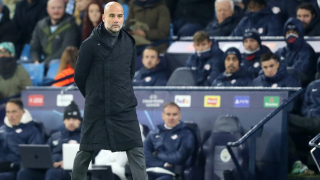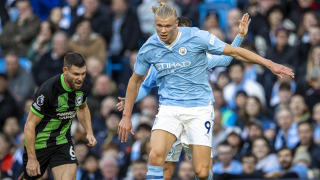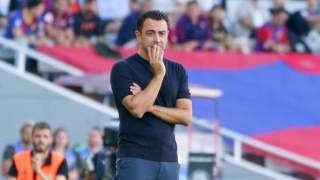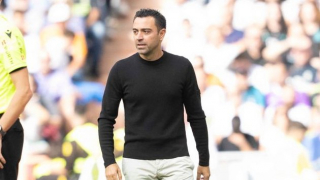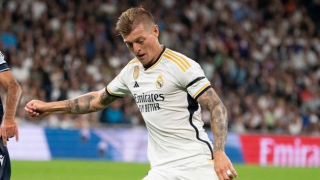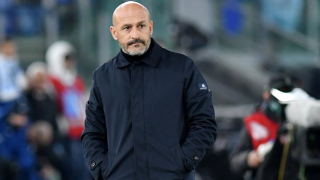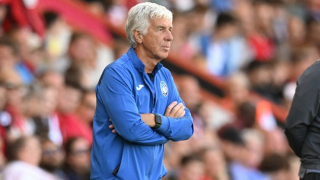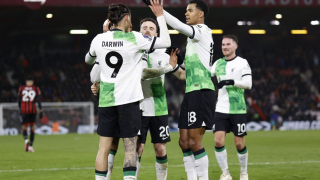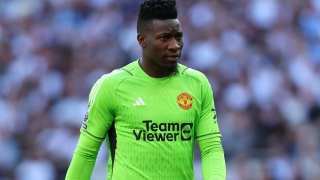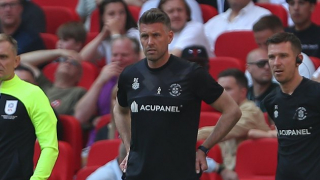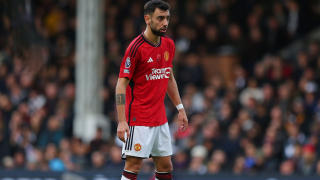Award winning American poet Jennifer Juneau discusses Liverpool striker Fernando Torres' fall from being the darling of the football media.
For the year 2009, the poll results for the top three players were similar with Messi and Ronaldo having exchanged places. The exception was Torres. The Madrid born Spanish national, who plays for Liverpool FC, was not even included in the final thirty.
The question is: How can a player of his calibre drop from sight so quickly? In order for him to exist in the public eye as one of the world's greatest centre forwards, he must be praised consistently either in the form of oral or written speech. After all, as far as the media is concerned, isn't it language that divides a good player from a superstar?
Everybody loves a winner, I love them true myself
At the time the Ballon d'Or award for 2008 was announced I was acquainted with a handful of players, but I could not place Torres and did not recall ever having heard of him. I did what any person in search of instant information would do in the 21st century: I logged onto the internet. I was surprised to learn that Torres was the player who scored the goal for the Spain national team to give his country the win in the Euro 2008. I imagine that this was the beginning of Torres taking the media by storm because up until then I watched all the matches without Torres as the focus.
After my discovery, I viewed his performances on YouTube and looked for Liverpool games on Sky Sports. After watching several interviews and commentaries I was impressed at how humble this superstar was. He spoke highly of his opponents and more appreciative about his fans. Twenty-four years old at the time, he was gracious and did not seem to take his success at Liverpool for granted.
Having scored thirty-three goals in his first league season at Anfield after leaving his boyhood club Atlético Madrid, he was Liverpool's first player since Robbie Fowler (1995-96) to score more than twenty goals in one season. His freckled face and long blond hair were more indicative of a California surfer than a European footballer, with a boyish look that earned him the nickname El Niño.
I viewed clips of his teammates and other football stars because I knew as well as anybody that I could pluck any player off of any playing field and glorify him. Set his pace to any cool song on YouTube to give the player charisma and get the viewer's heart pumping. But Torres was different. The determination in his face and his lack of hesitation near the seemingly ready goalkeeper brewed a confidence that erased the surrounding opposition and although his versatility in scoring from any position or distance was astonishing, he was more than just a good shot.
The more I conferred with the footage, the more intense my passion as a fan grew. Then suddenly, out of the blue, he was gone.
Just say it
This is not to say that Torres was not responsible for or deserving of his superstar status. What I'm simply saying is this: stripped of the language, or verdictives, used by commentators during a match to define his every move, Torres remained a top-notch athlete at his game. The use of language to describe a footballer had its own set of rules. The viewer relies on a particular language not only to understand what transpired during a match, but how important that particular play was.
For example, if the footballer pulls a hat trick, the first goal scored with his right foot, the second goal with his left foot and the third goal a header, the viewer might not be as precisely aware of the versatility of the player without a commentator's intervention.
During the March 5, 2008 West Ham match a commentator noted, "Fernando Torres electric once again, Fernando Torres just can't stop scoring."
Without speech to accompany the performance, the performance would elicit the same quality and difficulty as achieving a superior finish without sound. This is especially important to the viewer who is not familiar with the sport. We do not see, only hear the commentary, therefore without the visual aid of a commentator, the message is clearer, as if ringing in our own heads, making up our minds for us. What the commentator's goal is, is to give the spectator an image of greatness that we might not otherwise see through voice inflection by appraising, ranking and assessing, not because that greatness isn't there, it most likely is, but the speech act gives the onlooker a charge during a good play and this is what the onlooker wants.
But a commentary could run in the opposite direction too, denouncing a footballer, especially a high paid one if he commits an error not equivalent to the high standard placed before him. This was the case with the Swedish footballer Zlatan Ibrahimovic, who signed a five-year contract with Barcelona in exchange for Samuel Eto'o for a whopping $65 million back in July 2009. When Ibrahimovic failed to score a goal on several occasions for the La Liga giants, the commentators chastised him due to the expense that was paid.
It was rare to have heard a commentator criticize Torres during the height of his fame during a match when he missed a shot which should have been whipped past the goalkeeper despite the fact that he was the highest paid footballer in the country when he signed for Liverpool.
If a commentator does not throw a wrench into a current myth, there is no way of telling whether fans will make deductions concerning the actual performance or continue to imbibe ready-made iconography.
The difference is that when they become famous a select few are handpicked by the media and repeatedly applauded. It is then that we take a peak back at the previous years leading up to their success. Read about it
Verbal language is spontaneous while written language is planned. Torres was often referred to as "the Spanish football great" in articles or headlines, but lately in lieu of the player's scoring drought, the headlines dominating the newspapers began tearing him down. Amid rumors that Torres is planning an exit out of Anfield, headlines, like this one sighted in the November 2, 2010 issue of the Daily Mail, leaked the news, "Fernando's fantastic but we won't be signing Torres in January, insists Chelsea boss Carlo Ancelotti." Accompanying the article was a photograph of a fumbling Torres in the sidebar and a caption underneath it reading " Fernan-no: Carlo Ancelotti's not interested in Torres."
At one point before the 2010-2011 season began, Ancelotti expressed interest in him. "I prefer to be at home playing PlayStation and being calm"
"I don't like to be a big-head, or go to parties or events, or to be seen about," he has said, according to his official website and in an interview with The Telegraph. "I prefer to be at home playing PlayStation and being calm." Torres obviously values his privacy as he has stated, "What I don't like so much is the loss of privacy, not being able to have a good time with friends in a public place like any normal person, which at the end of the day is what I am." But his fans cannot see him as "any normal person" with the media hype that inflated him into a prize-worthy product fit for the consumer and it is exactly that hype that made him what he is.
So what happens when Torres drops from sight? Is he still the god his fans see him as? We may have to rely on history, which transforms him from a myth to a legend. I cannot imagine that he will be forgotten soon, or ever, but he was not exposed in the media months back when he was absent from the pitch due to injury except for articles stating that he was, well, absent from the pitch due to injury. "If I can touch the cup it will be the best moment for a footballer. After that you cannot do anything better"
Some news headlines looked glum, as this one regarding Torres's teammate for the Spain national team David Villa, "Villa everything Torres is not" stating "Villa, at this World Cup, is everything Fernando Torres is not. Mobile, desperate, composed, and alert. Torres is on his heels, and in all probability will now be on the bench."
Since Fernando Torres has been disappointing to his fans and through the press lately, I question whether it is the player himself that is disappointing or the constructed image of greatness that has fallen. I find myself scouting matches and newspapers for a new idol. The trouble is, nobody I have found carries that indescribable "something" thousands of fans and sports professionals have seen in the irreplaceable Torres and nothing I've read is anything to write home about.
Rumors have recently surfaced in the press that Manchester City are prepared to outbid any other team, namely Barcelona and Manchester United, for Torres in the January transfer window. There are high hopes amid diehard Torres fans that one of those managers will help restore Torres's superstar status. On the other hand, Liverpool fans are desperate to remain on cloud 9 and see him stay. The press will be waiting for an answer and if the right side has its way, it might just be a warmer winter.

